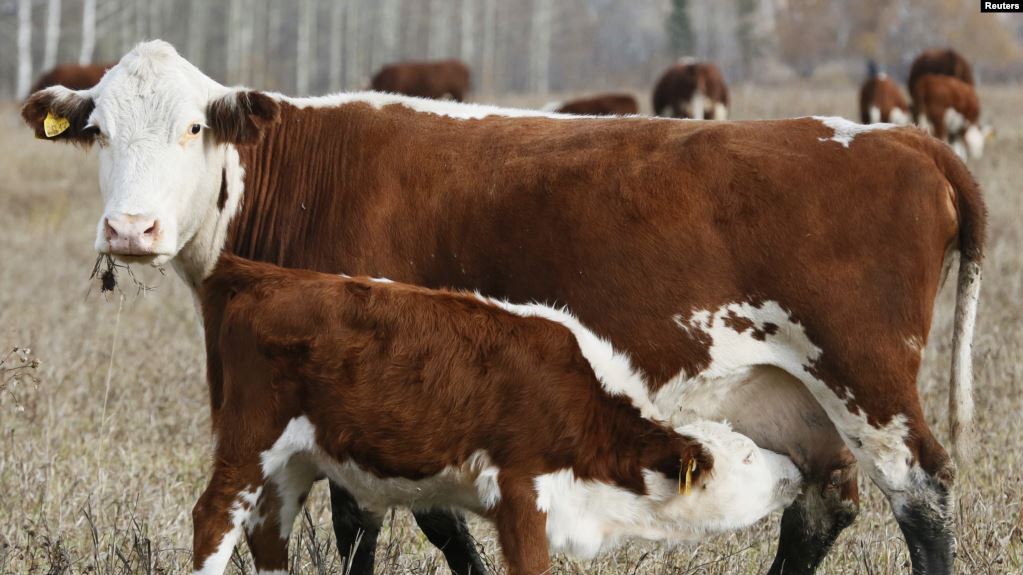پادکست VOA: اصطلاحات انگلیسی – گل سر سبد
سلام با هشتادمین قسمت از مجموعه “Words and Their Stories” (کلمات و داستان آن ها) از سری پادکستهای VOA در خدمت شما هستیم. این مجموعه پادکست به توضیح اصطلاحات رایج زبان انگلیسی، داستان ایجاد شدنشون و نحوه استفاده از آن ها در مکالمه می پردازه. در این قسمت از پادکست VOA: اصطلاحات انگلیسی – گل سر سبد قراره با کاربرد و معنی اصطلاح “cream of the crop” (خامه محصول!) آشنا بشی. در کنارش چندین اصطلاح و کلمه ی جالب و کاربردی دیگه هم یاد میگیری که لیست این کلمه ها به همراه معنی اون ها در پایان مطلب قرار گرفته.
اصطلاح “cream of the crop” (خامه محصول!) به چیزی گفته میشه که بهترین در نوع خودش باشه (the best of its kind). تو فارسی بهش میگیم: “گل سرسبد“. اصطلاح “peaches and cream” (هلو و خامه) به موقعیتی گفته میشه که اولش بد شروع شده اما الان اوضاع خیلی بهتره. وقتی تو یه مسابقه “get creamed” میشی یعنی به طور افتضاحی اون بازی رو باختی.
VOA – Words and Their Stories – 80: Why Is ‘Cream of the Crop’ the Best of the Best?

متن انگلیسی پادکست VOA: اصطلاحات انگلیسی – گل سر سبد :
Now, the VOA Learning English program Words and Their Stories.
On this show, we explore language. Where do expressions come from? And how do we use them?
Today we go down on the farm – the dairy farm, to be exact.
Many female animals, such as cows and goats, produce milk for their young. Cream is the fat in milk. And we use cream from farm animals to make many tasty foods. We also use cream in some really great expressions!
Let’s start with the best of the best – the cream of the crop!
You’re the cream of the crop. You’re the tip of the top.
You’re the best of the best – ahead of the rest.
(Sister Sledge sings “Cream of the Crop” from 1976.)
When you let milk sit, cream rises to the top. The cream is considered to be the best tasting part of milk. So, if something is the “cream of the crop,” it the best of its kind. For example, the apples from a farm near my house are the best, I could say they are the cream of the crop.
But English speakers use this expression for just about anything, not just food or drink.
We can describe people this way. For example, the students listed at the top of their class are generally the cream of the crop.
The noun “cream” has been used to mean “the best” since the 16th century. The French expression la crème de la crème means “the cream of the cream.” And it came into use in English by the year 1800.
These days, we commonly use crème de la crème in informal, everyday speech. You can often hear Americans say this even if they have never spoken French in their lives. For some reason, they drop the first article “la”. (Well, perhaps the reason is that they do not actually speak French.)
Now, back to foods!
Cream is used in many foods. Naturally, you needs cream to make a cream puff! A cream puff is a light and delicate pastry filled with sweet cream. They are a popular treat and can be very delicious.
Outside of the bakery, however, cream puffs can also describe a person.
If you call a man a “cream puff,” you are saying he is weak – both physically and mentally. And he is really not that good at anything.
Now, a cream puff you get from the bakery is delicate and can fall about easily. So, when talking about a woman, a cream puff is a delicate female.
I know she doesn’t really want to stay. Be careful how you hold her. Please don’t ever scold her. She’s my cream puff.
(UB40 sings “Cream Puff.”)
However, I would not suggest calling a woman a “cream puff.” It’s best to leave the cream puffs in the bakery.
Talking about baked good, many are made with butter. And butter comes from cream!
You start with a bowl filled with fresh cream. If you beat the cream again and again, you will get butter. Many dessert recipes call for mixing, or creaming, butter with other ingredients like sugar.
Creaming butter is an important part of making some foods. It can take some time and arm strength to cream butter, especially if it is cold. You must beat and beat the butter until it becomes soft.
So, it is not surprising that when you get creamed in real life, you get beaten badly. You can get creamed in a sporting event. If your basketball team loses by 30 points — you guys got creamed.
Usually there is an opponent who creams you. So, if you do poorly on a test, you would not say you got creamed. That would mean you were competing against other students and they won.
We also use the term “creamed” when talking about a physical beating. So, if someone beats you up — which we hope will never happen — you could say that person creamed you. (That is terrible and we are so sorry.)
But maybe the person who creamed you is a good friend. They apologized, and now, everything seems better. You could say that everything between you is now peaches and cream. This means a situation that started off badly or was going badly is now very much improved.
Here is another example. And this one does not involve anyone getting “beat up.”
Let’s say a new business got off to a bad start. The office space was in poor shape. The product launch failed. And several investors pulled out. But now, a year later, the company is turning a profit, the offices are beautiful and all the investors are happy. Everything is peaches and cream!
Peaches and cream is also used to describe a woman’s skin. This means her skin is creamy, clear and soft. Which is strange, when you think about it. Peaches are usually yellowish-orange and a little fuzzy. That would mean someone with a peaches-and-cream skin would look a little orange and a little hairy.
But it doesn’t mean that. As we often say, English is funny that way!
And that’s Words and Their Stories. I’m Anna Matteo.
Your final return will not diminish
And you can be the cream of the crop;
It’s not where you start, it’s where you finish,
And you’re gonna finish on top!
Anna Matteo wrote this story for VOA Learning English. George Grow was the editor. The song at the end is Tommy Tune singing “It’s Not Where You Start, It’s Where You Finish,” from the musical Seesaw.
لیست واژگان این پادکست
dairy (لبنیات)– n. an establishment for the sale or distribution chiefly of milk and milk products
delicate (ظریف)– adj. easily torn or damaged
pastry (شیرینی)– n. usually sweet baked goods made of dough having a high fat content
delicious (خوشمزه)– adj. appealing to one of the bodily senses especially of taste or smell
bakery (نانوایی)– n. a place for baking or selling baked goods
bowl (کاسه)– n. a round hollow dish without handles
fuzzy (کرکی)– adj. covered with short, soft hairs, fur, etc. : covered with fuzz
diminish (کم شدن)– v. to make less or cause to appear less
امیدوارم از پادکست VOA: اصطلاحات انگلیسی – گل سر سبد لذت برده باشید. برای دسترسی به قسمت های دیگر این پادکست می توانید از صفحه ی پادکست VOA: اصطلاحات انگلیسی آکادمی مجازی آموزش زبان ۲۴talk دیدن کنید.
همچنین برای گوش دادن به پادکست های سطح بندی شده British Council می توانید به صفحه ی پادکست British Council آکادمی مجازی آموزش زبان ۲۴talk یا برای گوش دادن به پادکست های BBC به صفحه ی پادکست ۶ دقیقه انگلیسی (BBC) آکادمی مجازی آموزش زبان ۲۴talk مراجعه کنید.
گوش دادن به پادکست روش خوبی برای تقویت مهارت شنیداری و هم چنین یادگرفتن کلمات در بستر یک موضوع خاصه که این به تقویت مهارت مکالمه انگلیسی نیز کمک زیادی می کنه.
اگه دنبال این هستی که مهارت های مکالمه زبان انگلیسیت رو بیشتر از این تقویت کنی بهت پیشنهاد میکنم در دورهی مکالمه زبان انگلیسی آکادمی مجازی آموزش زبان انگلیسی ۲۴talk شرکت کنی که با یه برنامه منسجم و خلاقانه کمک میکنه در زمان کوتاه بتونی به راحتی و روانی انگلیسی صحبت کنی.







